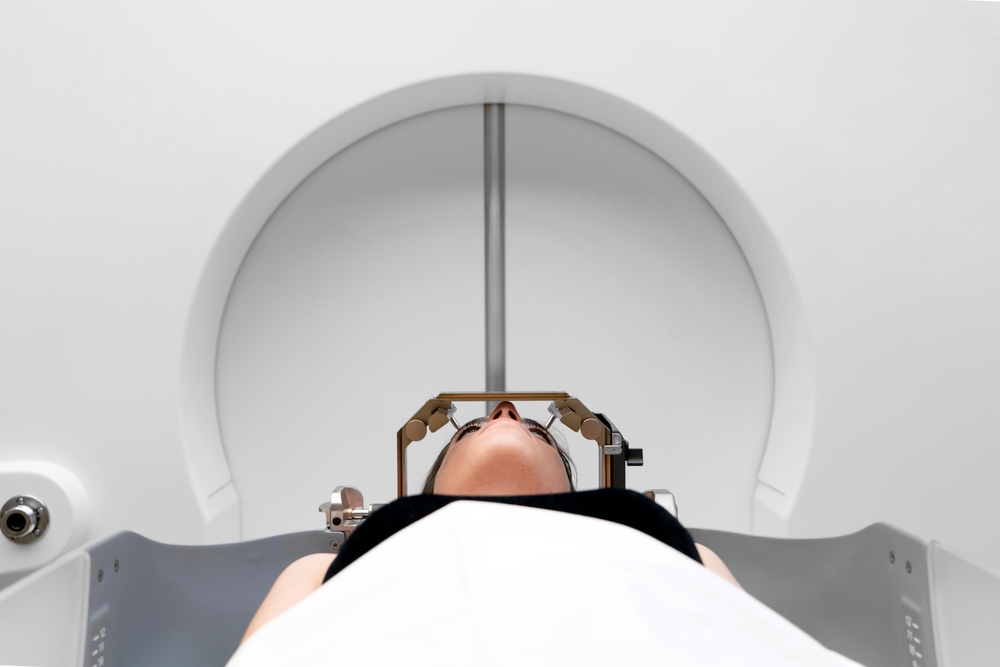Prostate-specific membrane antigen (PSMA) has revolutionized how doctors detect and treat prostate cancer. From spotting hidden tumours to delivering targeted therapy, PSMA offers a new level of precision and hope for patients facing this common cancer.
WORDS LIM TECK CHOON
 FEATURED EXPERT FEATURED EXPERTASSOCIATE PROFESSOR DR TAN TEIK HIN Consultant Nuclear Medicine Physician Sunway Medical Centre |
A CLOSER LOOK AT PSMA
According to Associate Professor Dr Tan Teik Hin:
- Prostate-specific membrane antigen, or PSMA, is a protein found in large amounts on the surface of prostate cancer cells.
- Over 80% of prostate cancer cases have cancer cells with high concentrations of PSMA. Such prostate cancer cases are called PSMA+.
- Its much higher concentration in cancer cells makes it an ideal biomarker (a biological “flag” used to detect disease).
PSMA has been called a milestone in prostate cancer care because it can be “targeted”.
- This means that doctors can attach specialized molecules to it for either detecting cancer through imaging or treating it directly.
- This dual purpose has helped close the gap between finding cancer and treating it effectively.
How Is PSMA Different from PSA?
- PSA or prostate-specific antigen is a protein found in blood and has long been used as a simple blood test to screen for prostate problems, including cancer. However, PSA levels can rise due to other conditions like benign enlargement or infection, leading to false alarms.
- PSMA, on the other hand, is not a blood marker. It is found on the cancer cells themselves and can be detected using imaging techniques that “light up” the tumour. This makes PSMA a more direct and accurate target compared to PSA, which can only hint at a possible problem.
HOW PSMA AIDS IN DETECTION OF PROSTATE CANCER
Associate Professor Dr Tan explains that PSMA is most commonly used in PSMA positron emission tomography (PSMA PET) scans.
- In this procedure, a tracer molecule that binds to PSMA is injected into the body.
- The tracer carries a small amount of radioactive material, which shows up clearly on the scan wherever PSMA — and therefore prostate cancer — is present.
Compared to older imaging methods like CT scans or bone scans, PSMA PET scans are:
- More sensitive as it is able to detect very small or early tumours.
- More detailed as it provides a clearer picture of the cancer’s location.
- Better for detecting metastasis as it can spot the cancer spreading to lymph nodes, bones, or other organs that older scans might miss.
HOW PSMA AIDS IN TREATING PROSTATE CANCER
- Radioligand therapy is a treatment that combines a ligand — a molecule that binds to a specific target — with a radioactive particle (radioligand).
- In the case of prostate cancer, Dr Tan explains that the ligand is designed to attach to PSMA.
- Once the radioligand binds to the cancer cell, it delivers radiation directly to it, destroying the cell from the inside while minimizing damage to healthy tissues.
Dr Tan shares that because PSMA is so highly expressed on prostate cancer cells, it acts as a homing beacon for this targeted therapy.
- This “seek and destroy” approach has given new hope to patients with advanced prostate cancer, particularly those whose cancer no longer responds to conventional treatments.
- Advantages of this approach include:
- Fewer side effects
- Potential to delay the progression of prostate cancer to more severe stages
- Potential to prolong survival
- Improve patient’s quality of life
- A possible option for patients for whom conventional treatments no longer work
HOW PSMA HAS CHANGED THE WAY WE DETECT AND TREAT PROSTATE CANCER
Better Detection Leads to Better Decisions
- With PSMA imaging, Dr Tan tells us that doctors can identify exactly where the cancer is, even if it has spread to just a few spots.
- This allows for more precise, tailored treatment such as directing radiation only to affected areas, adjusting surgery plans, or targeting drug therapy more effectively.
- Dr Tan reveals that PSMA PET has led to changes in treatment plans in up to 60% of patients, allowing doctors to target treatment more precisely.
Reduces Unnecessary and Overly Aggressive Cancer Treatment
- It also reduces the risk of unnecessary or overly aggressive treatment in patients whose cancer has not spread extensively.
- In short, PSMA has moved prostate cancer care toward a more personalized medicine approach.
| This article is part of our series on the latest innovations in cancer treatment. |












